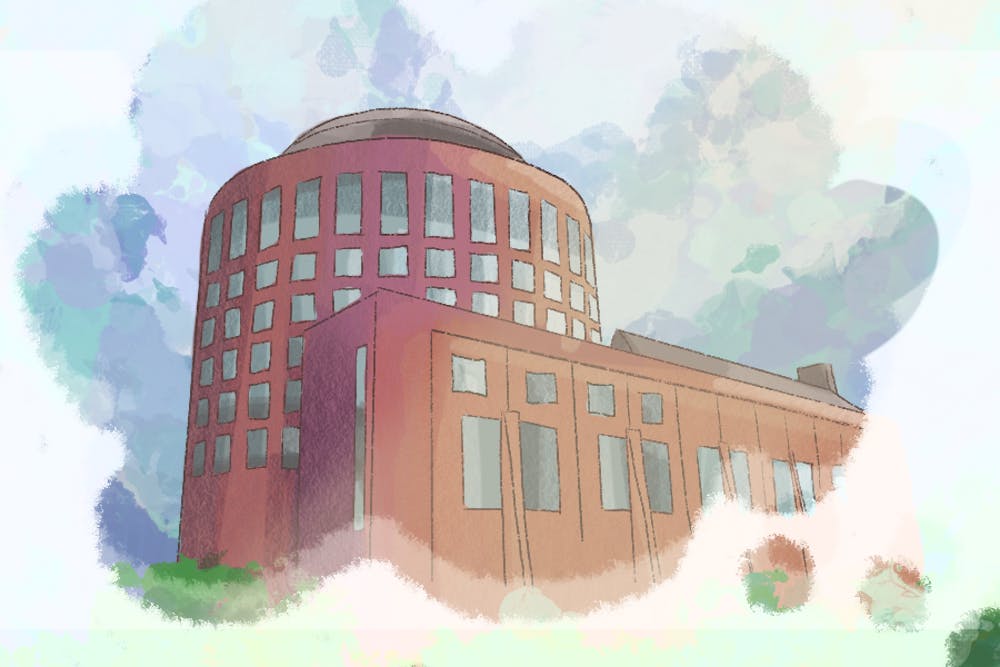
Dear Dr. James,
I got a notification on my phone when you were appointed. I was walking out of recitation when I read the news. I was inspired by who you are and what you’ve done. Throughout your career, you have undoubtedly faced many difficulties and had to break many barriers. You bring innovation to your positions and if your track record is an indicator of the future, Wharton will continue to shine and grow as one of Penn’s most recognizable points of pride.
But while Wharton’s reputation looms large on and off campus, you will face many challenges trying to improve the school. Not only will you be working to “advance the school’s mission of creating the world’s next ‘visionaries, inventors, and trailblazers’” but you will be doing so in a school that is, academically and socially, largely isolated from the greater University community. As you take the reins of your new school, working to bridge Wharton with the rest of Penn and Philadelphia should be one of your priorities.
Your new office will be in Huntsman Hall. Since being built in 2002, it stands tall as one of the most recognizable and most-utilized parts of this campus. Besides being home to many Wharton classes and offices, it is also home to 57 Group Study Rooms, each equipped with space for groups to work collaboratively on projects, presentations, and other things.
However, students outside of Wharton are not able to book one of these GSRs. Despite being less than 25 percent of the undergraduate population, Wharton students (according to PennLabs data) have sole access to over half of all GSRs on Penn’s campus, forcing those not in Wharton to fight for one of the few other GSRs or go through a Wharton student to book one. This seemingly protective measure is not present at peer institutions such as Harvard, and sends a strong, protectionist message from the school.
But these physical spaces are really just a metaphor for larger issues with Wharton’s integration with Penn. Wharton’s esteemed faculty are sealed off by bureaucratic policies that prevent College students from minoring in any of their Wharton-specific programs, with the sole exception of Statistics. Wharton students, meanwhile, are not restricted from minoring in the College. So while many Wharton students can and do pursue minors from the College of Arts and Sciences, the converse is not normally allowed. And although College students can minor in inter-school disciplines such as American Public Policy, shouldn't they also be able to minor in Wharton-specific subjects, given that Wharton students enjoy that flexibility in the College?
Even in the greater geographic community, connections are lacking. It was only this academic year that Wharton began to offer an academically-based community service course, while other Penn schools have been offering them for decades. These courses give students who may otherwise be ensnared in the Penn bubble the chance to go out and learn more about the Philadelphia community. With these opportunities limited, the best-structured options for Wharton students to leave campus are through clubs, and going into Philadelphia with the title of undergraduate consultant seems more pretentious than benevolent. As Dean, you can grow these options and play a part in improving Penn’s testy relationship with its host city.
So while Penn prides itself on interdisciplinary learning, Wharton seems content in fending off those on the outside. But it doesn’t have to be this way. If the goal of a university is to spread knowledge for the common good, why is Wharton so restrictive?
The side effect is that many undergraduates (especially underclassmen) at Penn see these protectionist practices as an indicator of prestige. Many students apply at the end of their second and third semesters to transfer into your school because they believe the name “Wharton” will increase their future prospects. However, College students can and do get hired in the same industries Wharton graduates typically flock to, such as finance and consulting.
But as the new Dean, you have the power to make these issues better. While I do not believe they are the most pressing issues you will face (there are, of course, ever-present diversity and wellness concerns), they do demand attention.
The problem may be best summed up by your own words. If Wharton’s goal is to create the next “visionaries, inventors, and trailblazers,” but you exclude students from other schools from your resources, what does that say about what Wharton thinks of other students?
When you start in July, Penn will ask you to be a trailblazer. We ask you to be a trailblazer for all 20,000 of us.
Sincerely,
Alfredo Praticò

ALFREDO PRATICÒ is a first year in the College from Philadelphia. His email is pratico@sas.upenn.edu.
The Daily Pennsylvanian is an independent, student-run newspaper. Please consider making a donation to support the coverage that shapes the University. Your generosity ensures a future of strong journalism at Penn.
Donate







